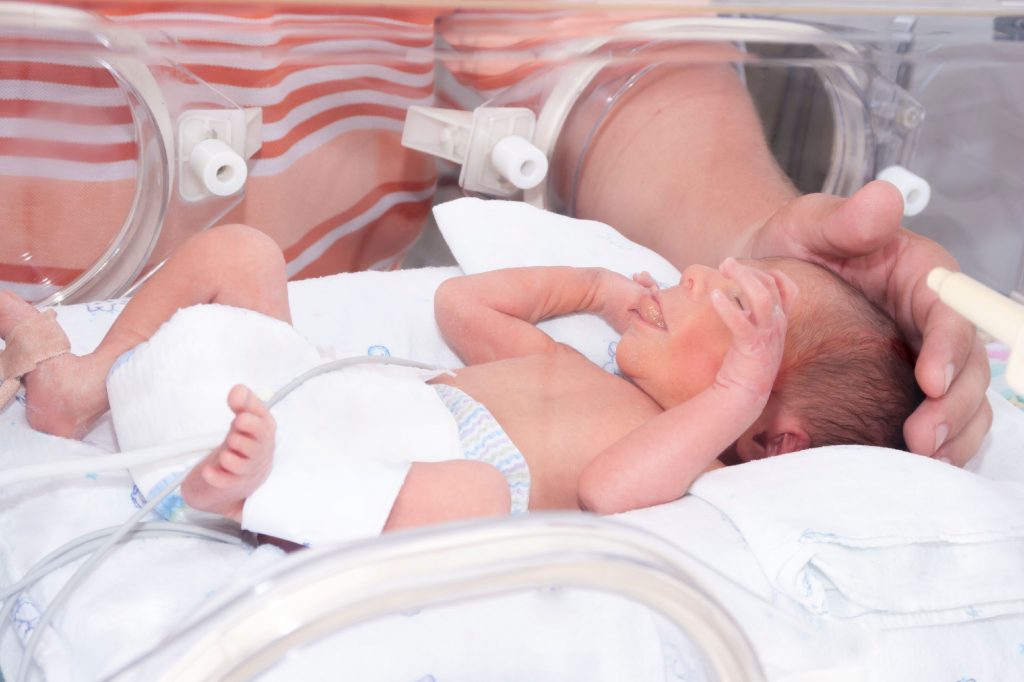Having a baby born not as expected, whether that be sick or premature, can be life-changing but know that you are not alone. It is common for parents to feel a range of complex emotions, at different times you may experience a combination of powerful feelings, such as; fear, guilt, anxiety, isolation, sadness, anger, confusion, and disappointment. Be assured that these are all natural responses to what is a very emotional and stressful time in your life. It is normal to grieve the loss of your dream of a normal pregnancy and all the experiences you were anticipating. Also know, that there is support available to help you cope and navigate the NICU and life at home, along with connect with others going through a similar experience, visit: www.miraclebabies.org.au to find out more.
The NICU is a very foreign and highly technical environment. Make use of the support available from doctors, nurses and social workers and help familiarise yourself with the machines, terminology and procedures so that you feel part of the team caring for your baby. Many neonatal units run parent groups where you can meet with other families and share your experiences. You may find it helps you feel less isolated and more supported in your journey.

As the weeks progress, the NICU will become more familiar, your baby’s condition will begin to improve and you will have more opportunities to feel closer to your baby. Having a kangaroo cuddle, bathing or establishing feeding are all ways that allow you to parent your baby and establish a bond that will continue to blossom.
A common concern shared by many parents is feeling distant from their child and worried that they may not be able to bond with their baby. This is normal, but know that your presence is vital to your child’s health and development. Your unique smell, the sound of your voice and your touch are all comforting to your baby and will ease their stress while in the NICU. Parents instinctively want to nurture and protect their baby and being separated while their baby is in NICU can be a painful experience.
When a mother is discharged from the hospital without her baby, most describe it as one of the hardest and most emotional days of their entire NICU journey. Many have envisioned leaving the hospital with a healthy baby, full of excitement for the future. Most are completely unprepared for the onslaught of emotions that surface when leaving the hospital with empty arms. Walking into your house can feel strange and the first night at home can bring lots of tears and sadness. An empty nursery with new clothes and toys is another solemn reminder that your journey has taken an unexpected path.
The first time I saw Ruby, I was overcome with emotion and bawled my eyes out – actually, I did that for the first few days until I got used to not being able to touch her. The nurses were great and very open to answering any questions I asked.
Mandy, Miracle Mum to Ruby born at 27+6 weeks
Tips for coping with separation from your baby:
- Acknowledge your baby’s birth by sending out birth announcements
- Take photographs and start an album or baby book
- Journal through your thoughts and feelings to record your baby’s progress
- Ask your baby’s nurse if you can take something home with your baby’s scent on it
- Express breast milk; it can help you feel close to your baby when you are away from them
- Call the hospital at any time of the day or night to check on your baby’s progress Record yourself reading a book and leave it in the NICU for your baby to listen to when you are not there
- Visit the hospital as often as you can
During this experience, all of your energy can go into worrying and caring for your new baby, but it is important to remember to take good care of yourself too. You need to be physically and emotionally able to care for your baby. Try to:
- Eat and drink regular, healthy meals
- Accept the help of friends and family
- Exercise (when medically approved) to alleviate stress
- Join a support group
- Meet with a NICU social worker, counsellor, or your spiritual advisor. You may find developing a self-care plan helpful
If at any time you feel overwhelmed or feel you are not coping well, it is important to seek help. You can:
- Call the Miracle Babies 24/7 NurtureLine 1300 MBABIES (1300 622 243)
- Tell someone how you are feeling, e.g. a counsellor, partner or friend
- Ask them to stay with you until you get help. Being with someone, even over the phone, increases your safety
- Contact a medical professional and tell them it is an emergency:
- Call your local hospital and ask to speak to the Mental Health Team
- Go to your GP or hospital emergency department and wait there until you see a doctor
- Call 000. The police or ambulance may be able to take you to the hospital
- Call a crisis Helpline
Visit www.miraclebabies.org.au for more information and support to help you through your experience.

